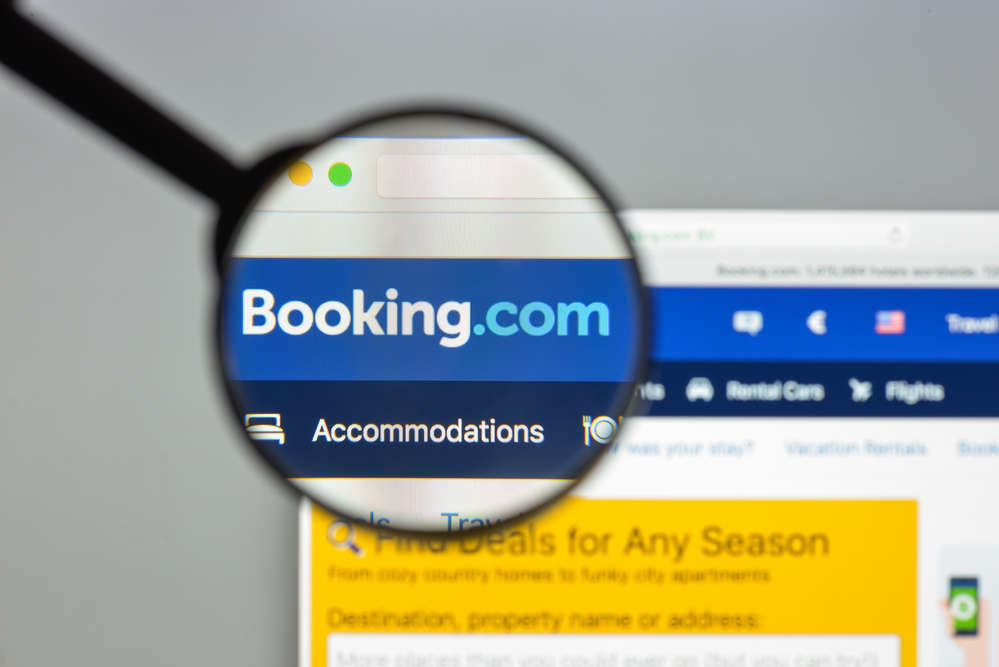Huge phishing scam on Booking.com: Hungarian users lost immense amounts of money

Change language:
A recent wave of phishing attacks targeting Booking.com users in Hungary has resulted in significant financial losses, with cybercriminals stealing approximately HUF 177 million (roughly EUR 440,000) over a three-month period. The scam, which exploits the trust users place in the popular accommodation booking platform, has prompted warnings from both law enforcement and Booking.com itself.
As 24.hu reports, the fraudsters’ stealing method involves sending emails that appear to be from legitimate accommodation providers. These messages contain links to websites that closely mimic Booking.com‘s interface. Under the guise of “information verification,” unsuspecting victims are asked to provide their credit card details and booking amounts. The scammers then trick users into “confirming” their bookings with a code, which actually authorises a fraudulent transaction, effectively charging the victim twice for their reservation.

Booking.com users scammed
According to police reports, between November 2024 and January 2025, 112 Hungarian users filed complaints or reports after falling victim to these fraudulent activities, HVG writes. The breakdown of the incidents is as follows:
- November 2024: 54 criminal proceedings initiated, with damages totalling HUF 32,308,778 (EUR 80,555).
- December 2024: 36 criminal proceedings, with losses amounting to HUF 136,695,333 (EUR 340,820).
- January 2025: 22 criminal proceedings, resulting in HUF 7,982,718 (EUR 19,902) in damages.
On average, victims lost approximately HUF 1.58 million (EUR 3,940) per incident. The police have launched investigations into these cases and are working with Booking.com to gather more information.
Booking.com has stated that their systems were not breached. However, they acknowledged that a small number of their accommodation partners fell victim to sophisticated phishing emails, which in some cases led to unauthorised access to their Booking.com accounts. This allowed the fraudsters to impersonate legitimate hosts and deceive guests.







A user, a Genius Level 2 with booking.com over a number of years but they have a REAL real, real PROBLEM.
They function in a manner they are SOULLESS.
My experience, you have a booking problem, and direct a complaint to there customer service center exampled publication of apartment facilities NOT as advertised, the SOULLESS – one dimensional attitude USED – applied – by booking.com – there CULTURE – is they respond in a “style” that muchly represents it’s YOUR problem – not ours.
My one “head on” with booking.com related to in the past (2) two years was related to an apartment we booked for (5) five days in Strasbourg.
It was 4 star plus – in the center of the “old town” of Strasbourg, France.
We arrived – stayed 3 hours and decided – it was just a FALSIFIED apartment presentation through the facilities provided by booking.com – there FACILITY.
We moved to a Hotel of our viewing – and stayed the (5) five days.
We complained on to both the apartment owner and booking.com
My evidence to them, of photo’s being FALSE of the property – and “other” failings in the accommodation “supposed” provision, had NO impact.
The photo’s of the apartment on booking.com – just REMAINED.
My written review in booking.com for the property – SAVAGE.
COMMUNICATION – no availability to TALK to another HUMAN being – in booking.com Customer Service Center – APPALLING.
COMMUNICATION – wanting to ask a question or “other” – the DISGUISTING lack of communication facilities – talk to a HUMAN being in booking.com – even to e-mail – there Customer Service Center – ABOMINATION.
I know firsthand how frustrating it is to be scammed, and for a while, I thought there was no way out. But then I learned about APTRECOUP, and they actually helped me get my funds back. The best part? They were founded by people who had been scammed themselves, so they understood exactly what I was going through. The process required patience, but their expertise made it possible. I never post things like this, but I know others are dealing with the same issue. If you’re feeling stuck, it might be worth checking if there are recovery options available. Just looking up their name online helped me take the first step.